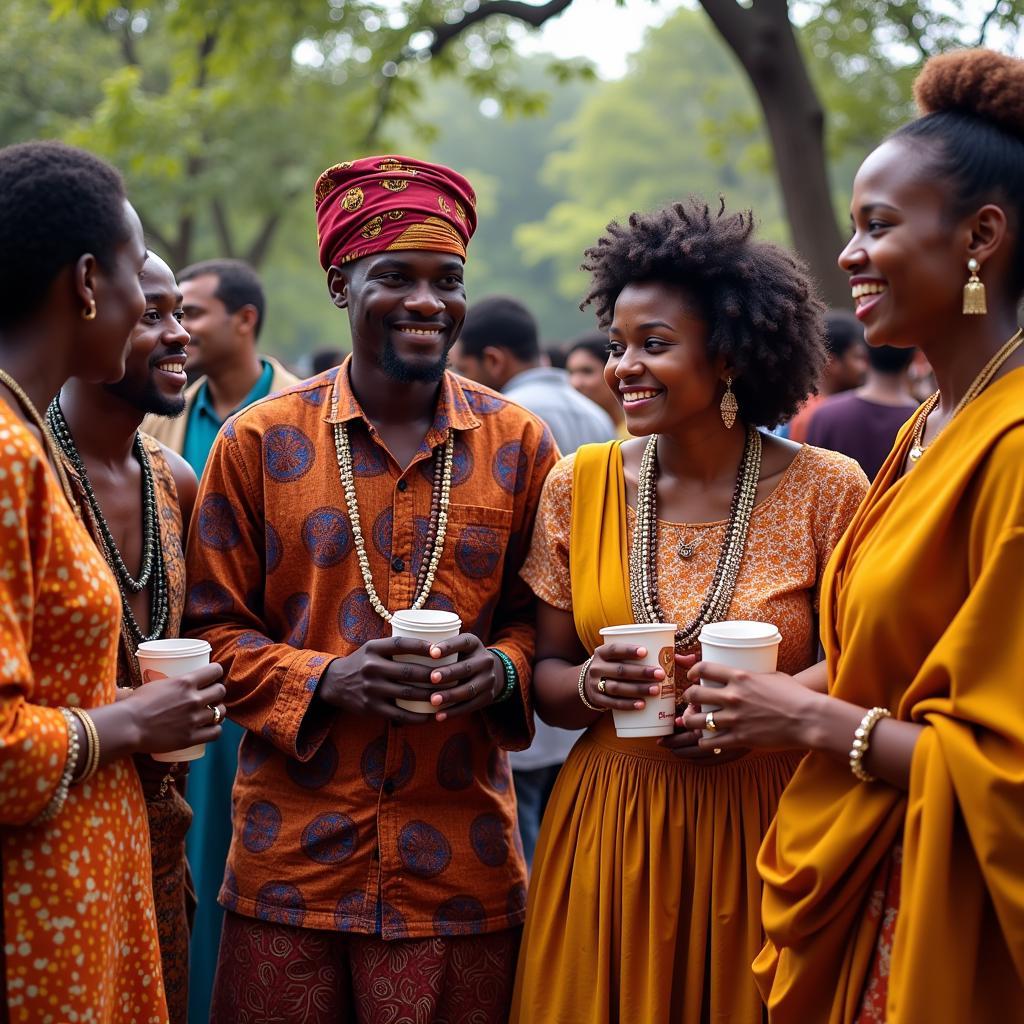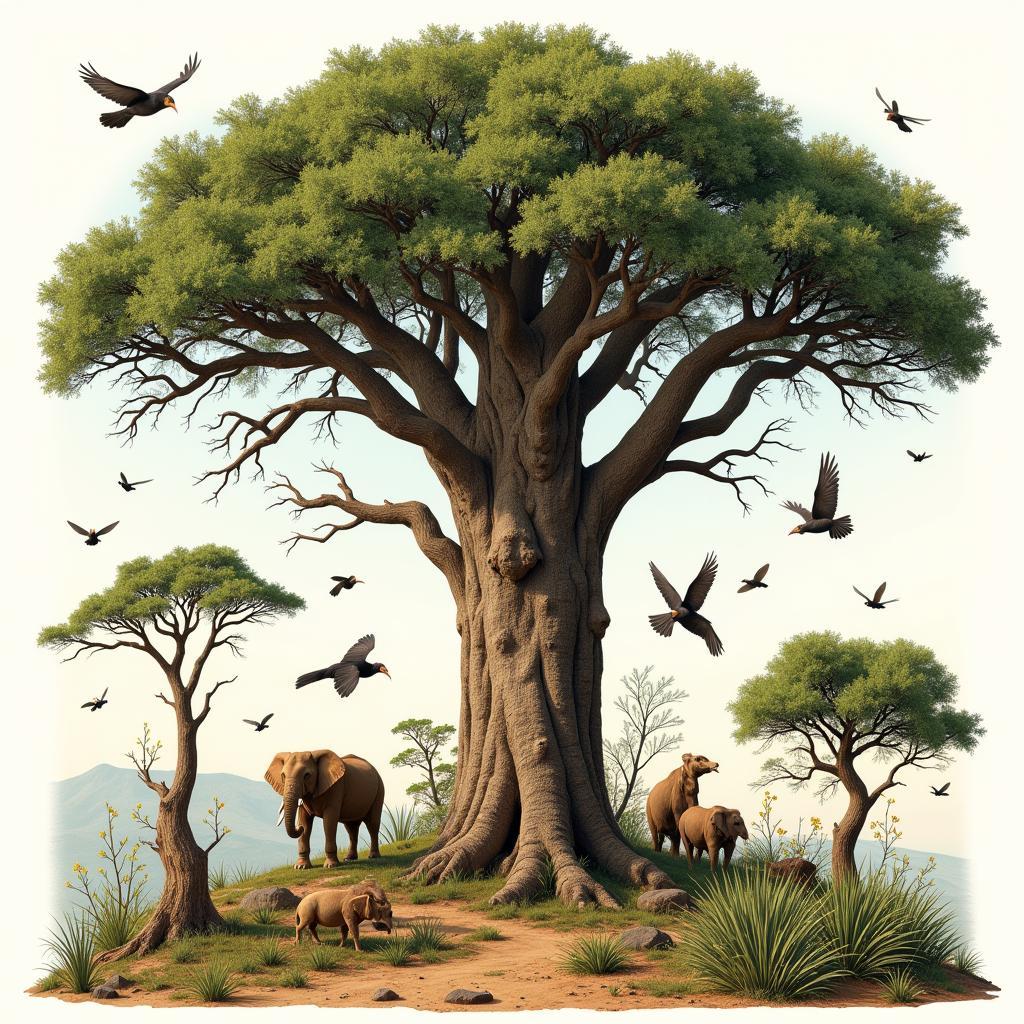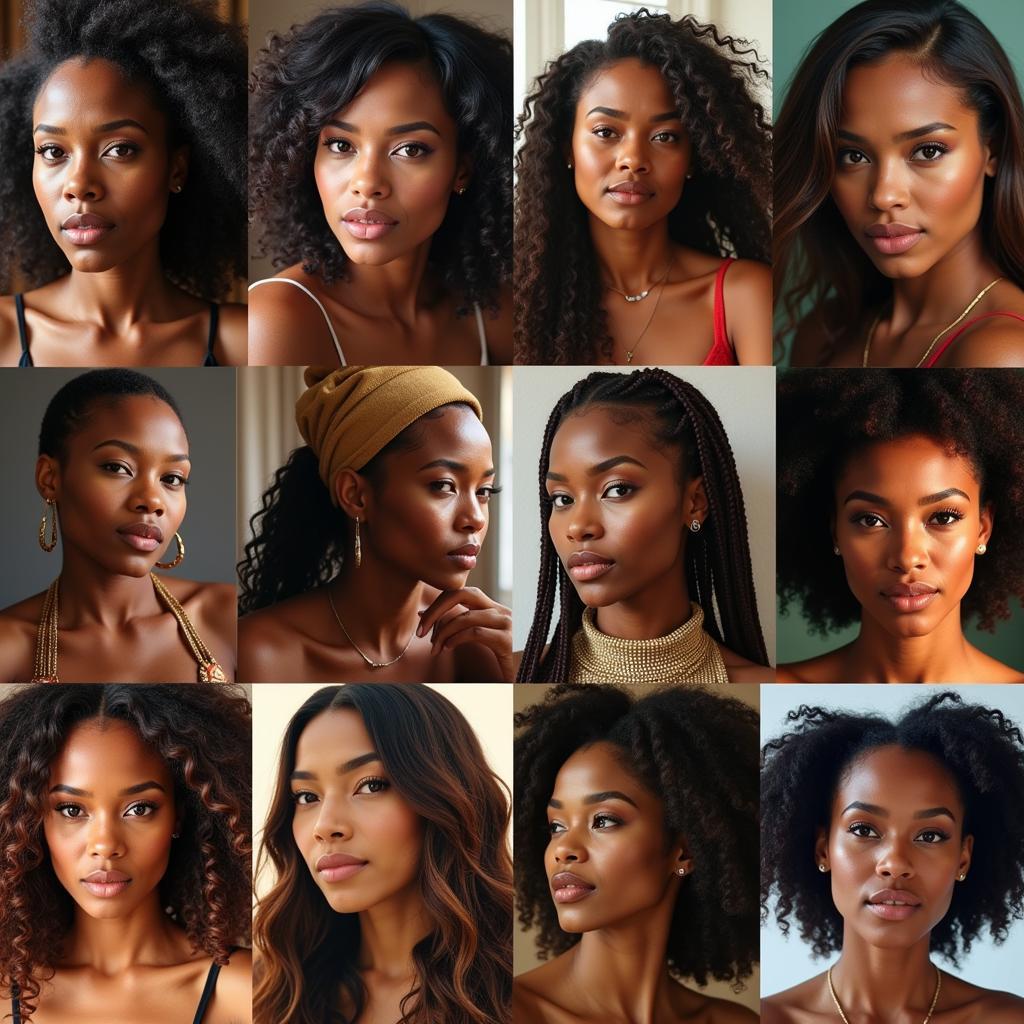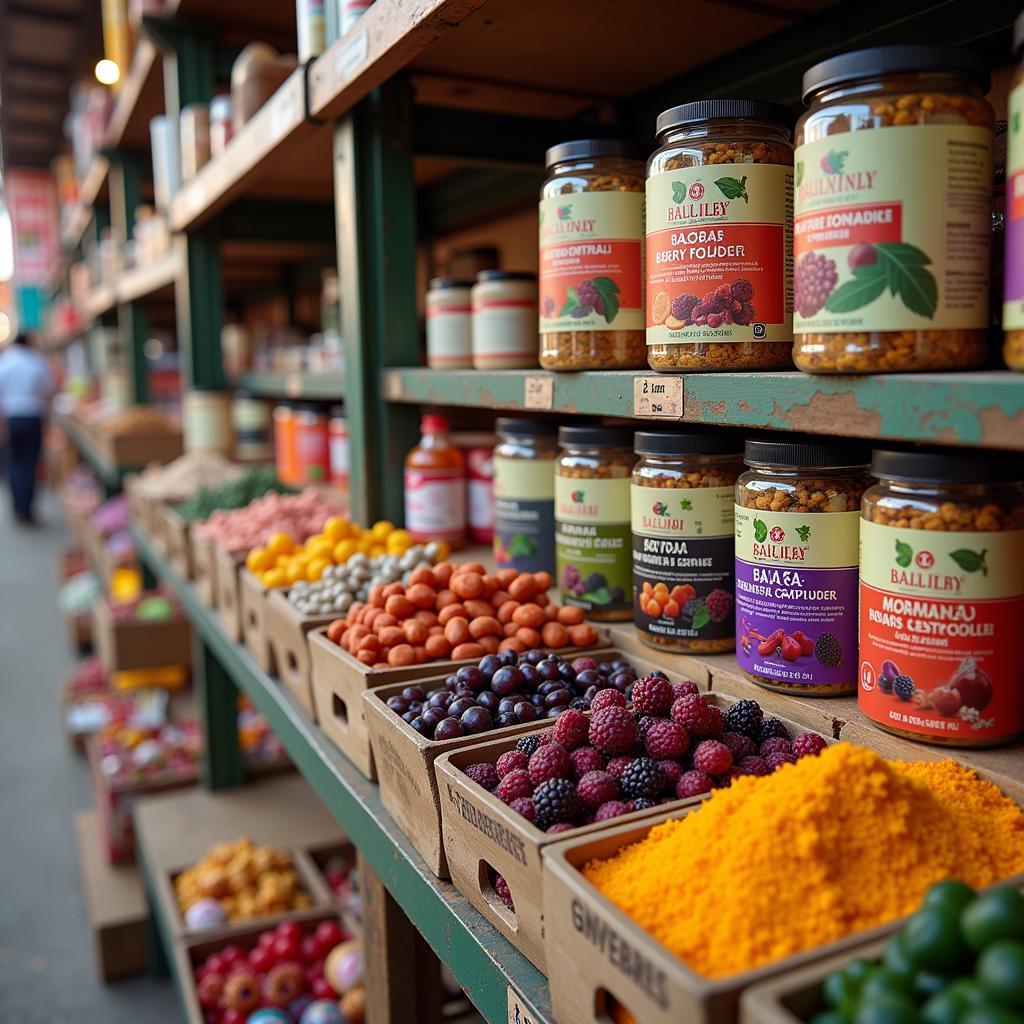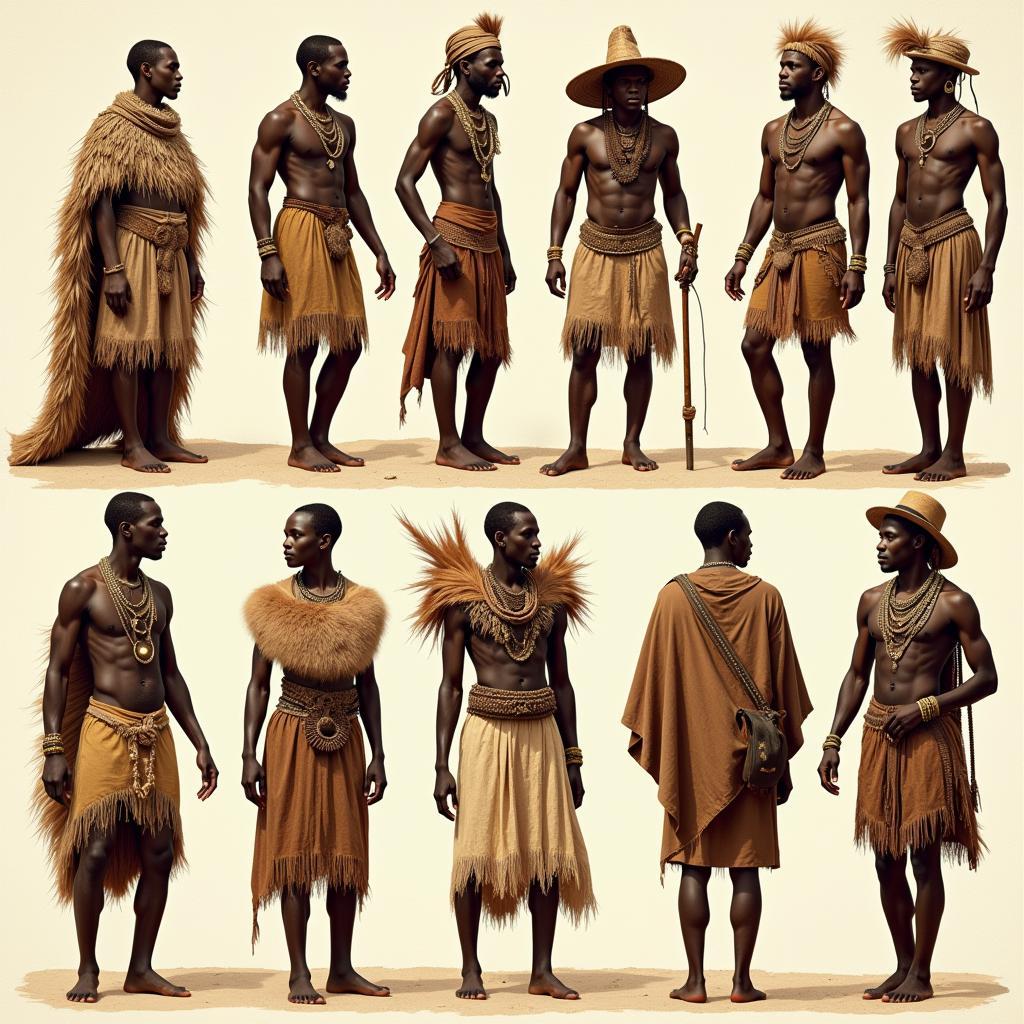Exploring African American Customs and Traditions
African American Customs and traditions are a rich tapestry woven from the threads of West African heritage, the harsh realities of slavery, and the ongoing struggle for civil rights. Understanding these customs is crucial to appreciating the resilience, creativity, and cultural depth of African Americans. This exploration delves into the unique blend of influences that have shaped African American culture, from music and food to family structures and religious practices.
The Deep Roots of African American Customs
African American culture isn’t a monolith. It’s a dynamic and diverse expression of human experience. However, many customs share common threads originating in West Africa. For example, the importance of oral tradition, storytelling, and music are deeply embedded within African American culture, reflecting the strong emphasis on these art forms in many West African societies. These traditions served as a vital means of preserving history, passing down knowledge, and building community, especially during slavery when literacy was often denied.
The influence of West African musical traditions is evident in various genres like gospel, blues, and jazz, all of which are integral to African American musical heritage. The call-and-response pattern, rhythmic complexity, and improvisation found in these genres are echoes of West African musical styles. These musical expressions often served as a form of resistance, communication, and spiritual solace. They also provided a platform for social commentary and the expression of joy, sorrow, and hope.
Family and Community: Cornerstones of African American Life
Family and community ties are paramount in African American culture. Extended family networks play a significant role in providing support, sharing resources, and transmitting cultural values. This strong emphasis on kinship, often referred to as “kinship care,” often extends beyond blood relatives to encompass close friends and community members, creating a strong sense of belonging and mutual support. This interconnectedness was especially crucial during times of hardship and continues to be a source of strength today. Learn more about African cultural heritage.
Church communities have historically served as vital centers for social activism, spiritual guidance, and community building. The church provided a safe space for organizing, sharing information, and mobilizing for change during the Civil Rights Movement and beyond.
Food as a Cultural Expression
Food plays a crucial role in African American culture, representing a fusion of African, European, and American influences. Dishes like gumbo, jambalaya, and chitterlings reflect the ingenuity and resourcefulness of African Americans, who often transformed limited ingredients into flavorful and nourishing meals. Soul food, with its roots in the Southern United States, is a testament to the culinary traditions developed during slavery and has become a symbol of African American identity and resilience. Learn more about African American customs and traditions.
What are some common African American traditions?
Some common African American traditions include storytelling, music, dance, food, and religious practices, many of which have roots in West Africa. These traditions have evolved over time, blending African heritage with the experiences of slavery and the ongoing fight for equality.
How has African American culture influenced American society?
African American culture has profoundly impacted American society, particularly in music, literature, art, and politics. From the blues and jazz to hip-hop and spoken word, African American artistic expressions have shaped global culture.
What are some important historical figures in African American culture?
Numerous influential figures have shaped African American history and culture, including Frederick Douglass, Harriet Tubman, Martin Luther King Jr., Rosa Parks, and Malcolm X, among many others. Their contributions to the fight for freedom and equality have left an indelible mark on American society.
What are some resources for learning more about African American customs?
Museums like the African Art Museum Boston offer valuable insights into the artistic heritage of the African diaspora. Websites and books dedicated to African American history and culture provide extensive information on customs, traditions, and significant historical events.
Conclusion
African American customs and traditions are a powerful testament to the enduring spirit and resilience of a people. By exploring these customs, we gain a deeper understanding of the complexities of American history and the rich tapestry of human experience. This journey into the heart of African American culture reveals the vibrant legacy of a community that has profoundly shaped the world we live in. Explore the beautiful African islands to visit and the African cartoon gif.
FAQ
- What is Kwanzaa? Kwanzaa is a week-long celebration of African heritage and culture, observed from December 26 to January 1.
- What is Juneteenth? Juneteenth commemorates the emancipation of enslaved African Americans in the United States.
- What are some traditional African American foods? Traditional foods include soul food dishes like collard greens, fried chicken, and macaroni and cheese.
- What is the significance of gospel music in African American culture? Gospel music plays a vital role in expressing faith, providing solace, and promoting community.
- What are some examples of African American folk tales? African American folk tales often feature characters like Brer Rabbit and John Henry, and convey moral lessons or commentary on social issues.
- What is the role of storytelling in African American culture? Storytelling is a powerful tradition that preserves history, teaches values, and strengthens community bonds.
- How can I learn more about African American customs and traditions? Exploring museums, books, and online resources can provide valuable insights into the richness and depth of African American culture.
Need Help?
When you need help, please contact us via Phone: +255768904061, Email: kaka.mag@gmail.com or visit our office at Mbarali DC Mawindi, Kangaga, Tanzania. We have a 24/7 customer service team.
